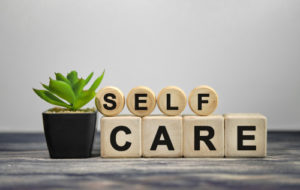This time of year sees email in boxes filled with information about how to prepare for the next year, reminders that grades are due, and papers await grading. We are deluged with predictions about the future, what to worry about, and sometimes even what to be excited about. Those with calendar year goals are often rushing to complete projects or solidify a final sale. Family and other holiday obligations can often add an extra level of stress as well. One thing often missing is how to make sure you are balanced and ensure you are taking time for self-care.
According to a recent NBC article about the increasing educator shortage, between retirements among an already-aging population and the stress and burnout of the pandemic, the number of potential educators in the pipeline is not nearly enough to match needs.
An October 2021 NPR report showed that 80,000 aspiring nurses were turned away from nursing schools due to a lack of adequate nursing instructors. It is clear that educator burnout can directly lead to shortages in other critical areas such as health care.
What are some simple things that can be done to help ameliorate educator burnout? AASA, the national superintendent association, has just released a new program called Live Well, Lead Well to encourage and support self-care. We all learned about Maslow’s Hierarchy of Needs and the need to ensure basic needs before we can expect our students and colleagues to reach the upper levels of the hierarchy. Alicia has said, “You can’t pour from an empty cup, and you need to take care of yourself in order to be of any use to others.”
For yourself, ensure you are getting the rest and support you need. If you don’t have a support system, look to your institutional resources, religious leaders, or family to help search out resources. If you don’t have a dog or pet, maybe one should be in your future. Eighty-four percent of PTSD patients saw stress levels reduced simply by petting a dog, according to a Johns Hopkins study.
A dog is a serious commitment, so here are a few other options:
- Look for positive people. Make prep time or lunch break plans with positive people. Agree to chat about non-controversial work or non-work topics.
- Don’t participate in caustic workplace activities. Walk away from the negative folks. Don’t allow them to set the workplace tone.
- Set time aside for exercise at least a couple of times a week.
- Ensure you are getting enough sleep on a regular sleep schedule.
- Start meetings and classes with positive items. In faculty meetings, take time to celebrate successes and congratulate others on achievements. Create a positive work environment.
- Set time aside for hobbies, reading, or spending time with family. Just as we schedule meetings, it can be essential to schedule down time to recharge our batteries.
- Set clear work boundaries. Close your email program at a certain time each day or don’t respond to emails or return calls on weekends. Portugal recently banned employers from texting workers after hours.
If you feel you need help, remember you are not alone and reach out. Contact your medical doctor, your religious advisor, or the Employee Assistance Program at your school. The National Institute for Mental Health includes links to a number of federal mental health resources. Most states and some large cities and many universities have similar mental health resource pages. Take care of yourself. It will help you and those with whom you work.
- Defining a path to equitable AI in higher education - April 12, 2024
- Leveraging AI-driven edtech for continuous improvement in higher ed - April 11, 2024
- How higher ed can put the right guardrails in place to leverage AI’s power - April 9, 2024

